Manoj Ghuhan Arivazhagan
When Facts Change: Probing LLMs on Evolving Knowledge with evolveQA
Oct 22, 2025Abstract:LLMs often fail to handle temporal knowledge conflicts--contradictions arising when facts evolve over time within their training data. Existing studies evaluate this phenomenon through benchmarks built on structured knowledge bases like Wikidata, but they focus on widely-covered, easily-memorized popular entities and lack the dynamic structure needed to fairly evaluate LLMs with different knowledge cut-off dates. We introduce evolveQA, a benchmark specifically designed to evaluate LLMs on temporally evolving knowledge, constructed from 3 real-world, time-stamped corpora: AWS updates, Azure changes, and WHO disease outbreak reports. Our framework identifies naturally occurring knowledge evolution and generates questions with gold answers tailored to different LLM knowledge cut-off dates. Through extensive evaluation of 12 open and closed-source LLMs across 3 knowledge probing formats, we demonstrate significant performance drops of up to 31% on evolveQA compared to static knowledge questions.
Federated Learning with Personalization Layers
Dec 02, 2019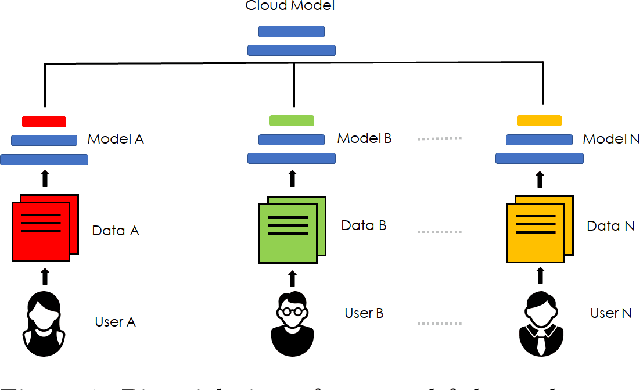

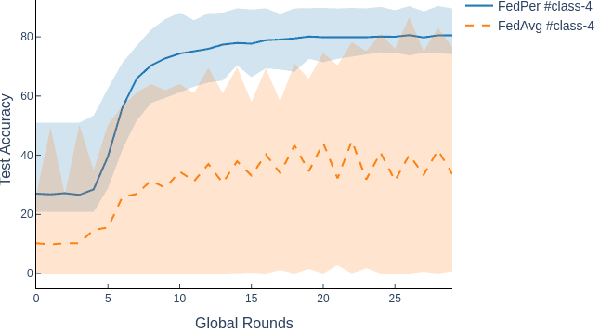

Abstract:The emerging paradigm of federated learning strives to enable collaborative training of machine learning models on the network edge without centrally aggregating raw data and hence, improving data privacy. This sharply deviates from traditional machine learning and necessitates the design of algorithms robust to various sources of heterogeneity. Specifically, statistical heterogeneity of data across user devices can severely degrade the performance of standard federated averaging for traditional machine learning applications like personalization with deep learning. This paper pro-posesFedPer, a base + personalization layer approach for federated training of deep feedforward neural networks, which can combat the ill-effects of statistical heterogeneity. We demonstrate effectiveness ofFedPerfor non-identical data partitions ofCIFARdatasetsand on a personalized image aesthetics dataset from Flickr.
Data-Driven Compression of Convolutional Neural Networks
Nov 28, 2019
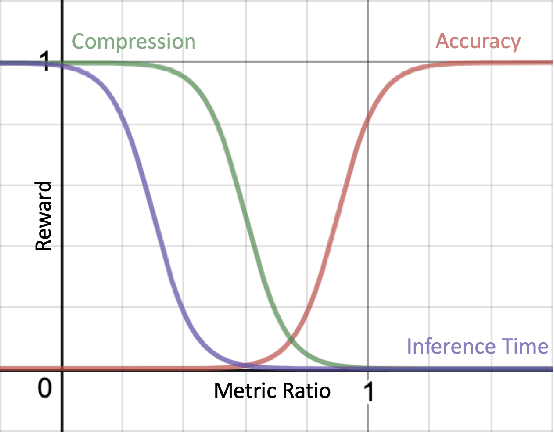
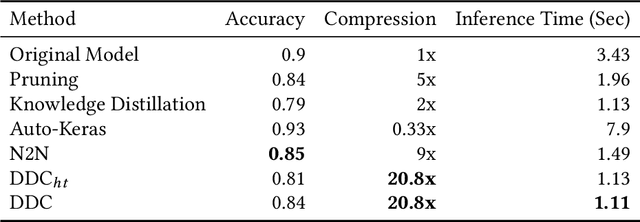
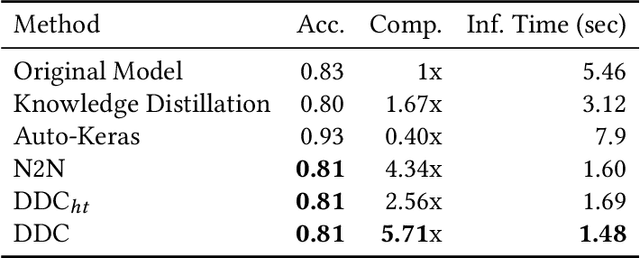
Abstract:Deploying trained convolutional neural networks (CNNs) to mobile devices is a challenging task because of the simultaneous requirements of the deployed model to be fast, lightweight and accurate. Designing and training a CNN architecture that does well on all three metrics is highly non-trivial and can be very time-consuming if done by hand. One way to solve this problem is to compress the trained CNN models before deploying to mobile devices. This work asks and answers three questions on compressing CNN models automatically: a) How to control the trade-off between speed, memory and accuracy during model compression? b) In practice, a deployed model may not see all classes and/or may not need to produce all class labels. Can this fact be used to improve the trade-off? c) How to scale the compression algorithm to execute within a reasonable amount of time for many deployments? The paper demonstrates that a model compression algorithm utilizing reinforcement learning with architecture search and knowledge distillation can answer these questions in the affirmative. Experimental results are provided for current state-of-the-art CNN model families for image feature extraction like VGG and ResNet with CIFAR datasets.
 Add to Chrome
Add to Chrome Add to Firefox
Add to Firefox Add to Edge
Add to Edge